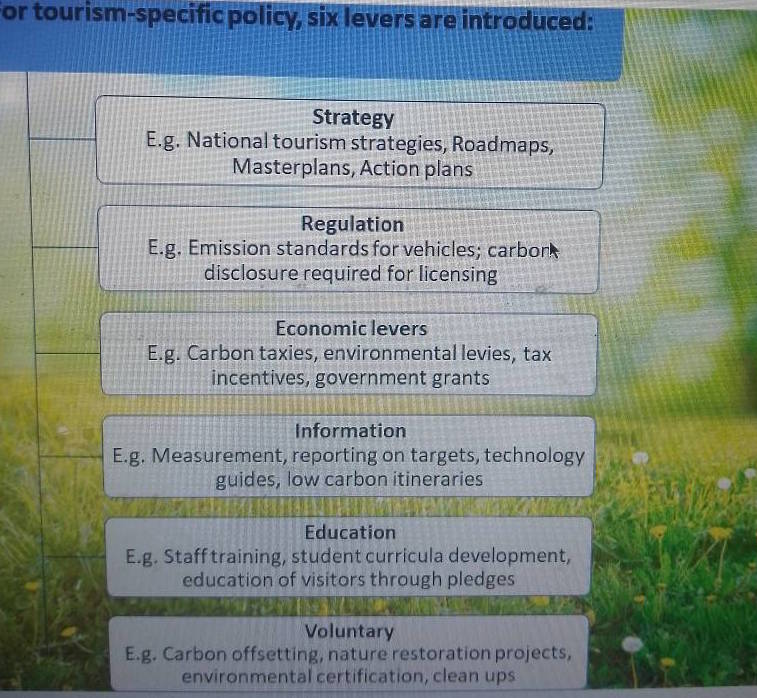|
Getting your Trinity Audio player ready...
|
The policy guidance was developed to assist governmental agencies dedicated to tourism in the development of tourism climate action policies and initiatives to support the low-carbon transition for tourism.
This guidance addresses four areas that National Tourism Administrations (NTAs) can focus on. Foremost, NTAs need to engage with national climate policy-making processes in their country, including the Nationally Determined Contribution (NDC) and other national climate policies. Moreover, tourism policymakers will benefit from engaging in cross-governmental initiatives linked to national climate policy, for example in the areas of transport, energy, and conservation. Second, tourism as a stand-alone policy domain can develop tourism laws, policies, and strategies that support climate action. Third, NTAs have an opportunity and responsibility to drive climate awareness and engage tourism stakeholders to support climate action, including travellers. Fourth, additional levers are available through finance and strategic partnerships, including those related to climate finance which are critical to achieving the low-carbon transition for tourism.
This policy guidance provides examples of good practices from around the world to illustrate how NTAs can implement climate-enabling policies and other initiatives as well as benefit from climate initiatives in other sectors. The policy guidance is complemented by a Glasgow Declaration signatory Pack for NTAs which provides practical recommendations on how to get started with climate action.
The development of the Policy Guidance and Engagement Pack followed a participatory process that involved consultations with climate action focal points in Ministries of Tourism, nominated at the invitation of UN Tourism’s Secretary-General. Their engagement in the participatory process was crucial for the development of the Policy Guidance.
See below, six levers for tourism-specific policy







